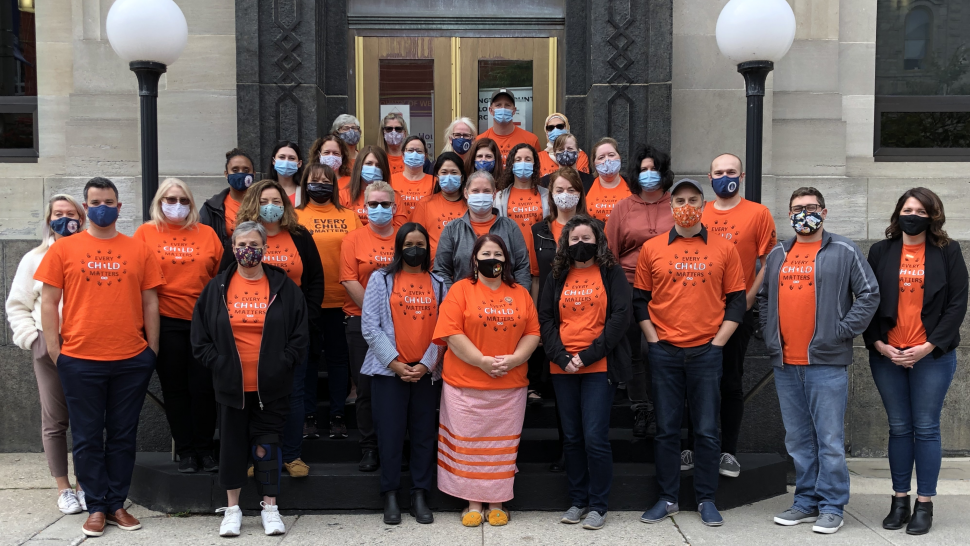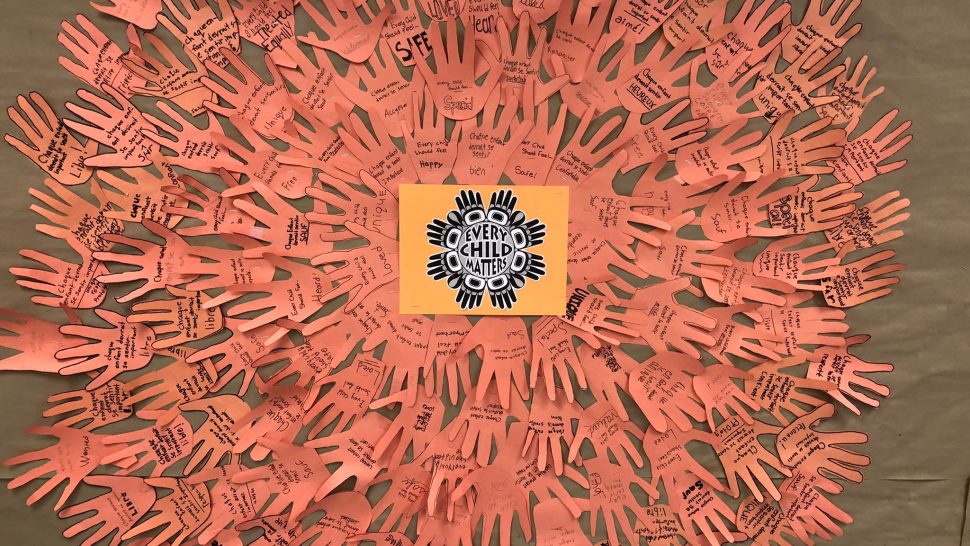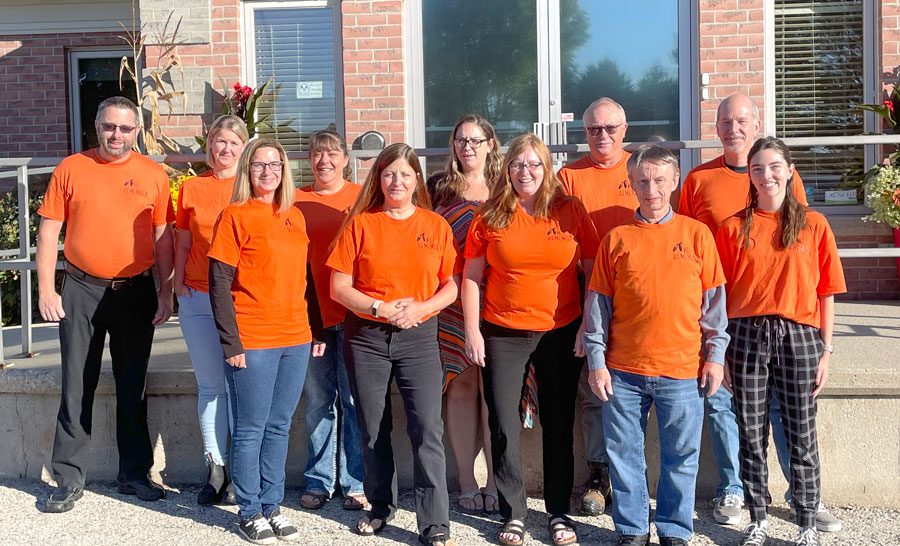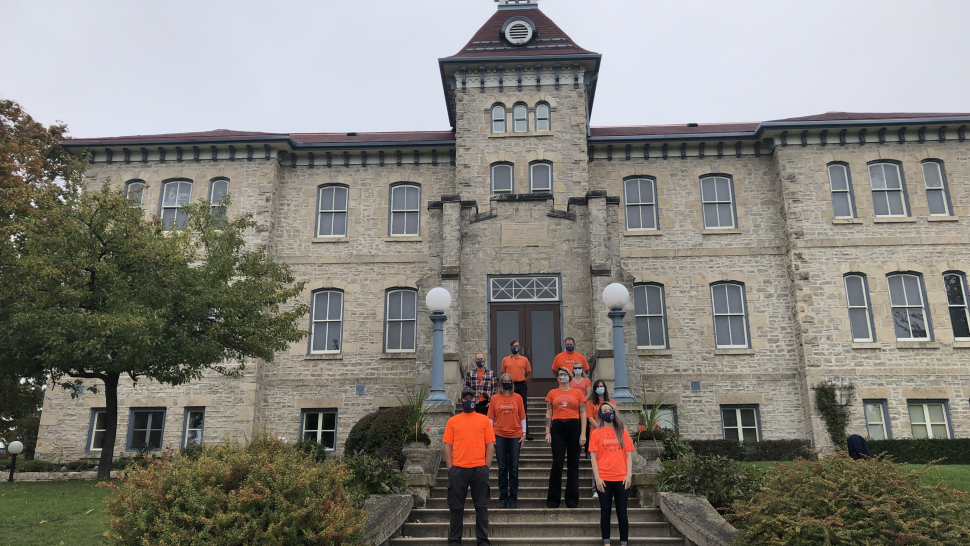WELLINGTON COUNTY – Local schools, municipalities, organizations, workplaces and individuals took time on Friday to recognize the second annual National Day for Truth and Reconciliation.
The day provides an opportunity for Canadians to reflect on the legacy of Residential Schools and the ongoing impacts on survivors and their families and communities, and also presents an opportunity to commit to steps to facilitate reconciliation going forward.
Between 1831 and 1998, at least 150,000 First Nations, Inuit, and Métis children were forcibly removed from their families and communities and sent to Residential Schools.
There they were forced to abandon their languages, cultures, traditions and identities.
“Many experienced physical, emotional, and sexual abuse, and thousands never came home,” Prime Minister Justin Trudeau said in a Sept. 30 statement.
“The experiences and intergenerational trauma of these so-called schools continue to live on for Indigenous Peoples across the country every single day.”
Sept. 30 also marks Orange Shirt Day, during which Canadians wear orange to remember and honour Indigenous children forced to attend Residential Schools.
Orange Shirt Day recognizes Phyllis Jack Webstad, a survivor from the Stswecem’c Xgat’tem First Nation who attended St. Joseph Mission Residential School in British Columbia.
On her first day of school, Webstad proudly wore an orange shirt given to her by her grandmother.
But when she arrived, the shirt was immediately taken away from her by school staff, marking the beginning of her long and traumatic separation from her family and community.
“On this day … I invite everyone to listen to survivors and learn more about the history and legacy of the residential school system by participating in a local event or wearing an orange shirt,” stated Trudeau.
“Let’s take a moment today to participate, learn, and reflect.
“We all have a role to play on the journey toward reconciliation.”












